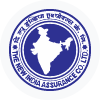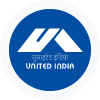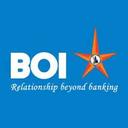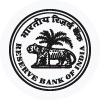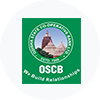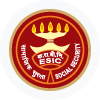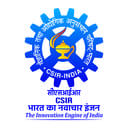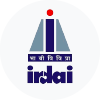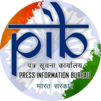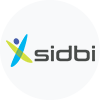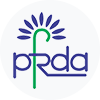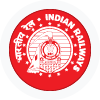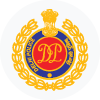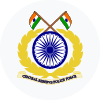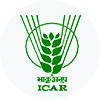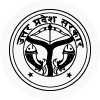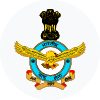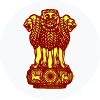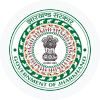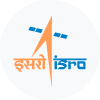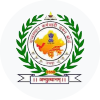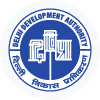IFSCA Grade A Syllabus 2025
IFSCA Grade A Syllabus for Paper 2 of Phase I in General Stream
1. General knowledge, Current events of national and international importance
2. Economic and social development (sustainable development, poverty, inclusion, and
demographics)
(i) Growth and Development
a) Measurement of growth: National Income and per capita income
b) Poverty Alleviation and Employment Generation in India
c) Sustainable Development and Environmental issues.
(ii) Social Structure in India
a) Multiculturalism
b) Demographic Trends
c) Urbanisation and Migration
d) Gender Issues – Social Justice
3. Commerce and Accountancy
(i) Accounting as a financial information system;
(ii) Accounting Standards with specific reference to Accounting for Depreciation,
Inventories, Revenue Recognition, Fixed Assets, Foreign Exchange Transactions,
Investments.
(iii) Cash Flow Statement, Fund flow statement, Financial statement analysis; Ratio
analysis;
(iv) Accounting for Share Capital Transactions including Bonus Shares, Right Shares.
(v) Employees Stock Option and Buy-Back of Securities.
(vi) Preparation and Presentation of Company Final Accounts
4. Management
(i) Management: its nature and scope; The Management Processes; Planning,
Organization, Staffing, Directing and Controlling;
(ii) The Role of a Manager in an Organization. Leadership: The Tasks of a Leader;
(iii) Leadership Styles; Leadership Theories; A successful Leader versus an effective
Leader.
(iv) Human Resource Development: Concept of HRD; Goals of HRD;
(v) Motivation, Morale and Incentives: Theories of Motivation; How Managers Motivate;
Concept of Morale; Factors determining morale; Role of Incentives in Building up
Morale.
(vi) Communication: Steps in the Communication Process; Communication Channels;
Oral versus Written Communication; Verbal versus non-verbal Communication;
upward, downward and lateral communication; Barriers to Communication, Role of
Information Technology.
(vii)Corporate Governance: Factors affecting Corporate Governance; Mechanisms of
Corporate Governance
5. Finance
(i) Financial System
a) Role and Functions of Regulatory bodies in Financial Sector.
(ii) Financial Markets
a) Primary and Secondary Markets (Forex, Money, Bond, Equity, etc.), functions,
instruments, recent developments.
(iii) General Topics
a) Basics of Derivatives: Forward, Futures and Swap
b) Recent Developments in the Financial Sector
c) Financial Inclusion- use of technology
d) Alternate source of finance, private and social cost-benefit, Public-Private
Partnership
e) Direct and Indirect taxes; Non-tax sources of Revenue, GST, Finance
Commission, Fiscal Policy, Fiscal Responsibility and Budget Management Act
(FRBM),
f) Inflation: Definition, trends, estimates, consequences, and remedies (control): WPI,
CPI - components and trends.
g) Financial Risk Management
6. Costing
(i) Overview of Cost and Management Accounting - Introduction to Cost and
Management Accounting, Objectives and Scope of Cost and Management
Accounting.
(ii) Methods of Costing - Single Output/ Unit Costing, Job Costing, Batch Costing,
Contract Costing, Process/ Operation Costing, Costing of Service Sectors.
(iii) Basics of Cost Control and Analysis - (i) Standard Costing, (ii) Marginal Costing, (iii)
Budget and Budgetary Control.
(iv) Lean System and Innovation:-
a) Introduction to Lean System
b) Just-in-Time (JIT)
c) Kaizen Costing
d) 5 Ss
e) Total Productive Maintenance (TPM)
f) Cellular Manufacturing/ One-Piece Flow Production Systems
g) Six Sigma (SS)
h) Introduction to Process Innovation and Business Process Re-engineering (BPR).
7. Indian Economy & Global Economy
(i) Demand and Supply, Market Structures, National Income: Concepts and
Measurement, Classical & Keynesian Approach Determination of output and
employment, Consumption Function, Investment Function, Multiplier and
Accelerator, Demand and Supply for Money , IS – LM, Inflation and Phillips Curve,
Business Cycles
(ii) Balance of Payments, Foreign Exchange Markets, Inflation, Monetary and Fiscal
Policy, Non-banking Financial Institutions.
(iii) Role of International Financial Institutions: BIS, IOSCO, IMF & World Bank.
8. Central Government's initiatives/ Schemes in the financial sector.
IFSCA Grade A Syllabus for Paper 2 of Phase II in General Stream
1. IFSCA Act, IFSCA, IFSC, GIFT IFSC, GIFT City and Global Financial Centres
2. Union Budget — Concepts, approach and broad trends & Economic Survey
3. Banking
(i) Structure and Functions of Financial Institutions
(ii) Functions of Reserve Bank of India
(iii) Banking System in India – Structure and Developments, Financial Institutions –
SIDBI, EXIM Bank, NABARD, NHB, NaBFID etc.
(iv) Recent Developments in Global Financial System and its impact on Indian Financial
System
(v) Role of Information Technology in Banking and Finance
(vi) Non-Banking System
(vii)Developments in Digital Payments
4. Capital Market
(i) Role and Functions of Regulatory bodies in Financial Sector.
(ii) Primary and Secondary Markets (Forex, Money, Bond, Equity, etc.), functions,
instruments, recent developments
(iii) Basics of Derivatives: Forward, Futures and Swap
(iv) Spot and Derivative market of Precious Metals
5. Insurance
(i) History of Indian Insurance, principles of Insurance;
(ii) Risk and uncertainty, pooling and diversification of risk, Indemnity and Insurable
interest;
(iii) Legal foundations of Insurance, basics in Group/Health Insurance/Pensions;
Intermediation: role in mobilising savings, evolution of various types and
Bancassurance in India;
(iv) Functions performed by Insurers: Product design, pricing, distribution, underwriting,
claims, Investment and Reinsurance;
(v) Insurance lines and products: Property-Liability, Life Insurance and Annuities and
Health Insurance; Liability risks and Insurance, valuation and Solvency requirements,
Specialist Insurance lines in India - Agricultural and Export Credit Guarantee;
Reinsurance, GIC of India, obligator sessions and retention of risk within the
Country.
6. Pension Sector
(i) Status of pension sector in India
(ii) Types of retirement schemes in India and their features
(iii) National Pension System
(iv) Atal Pension Yojana
(v) Annuity Plans
(vi) Basics of investment
IFSCA Grade A Syllabus for Paper 2 of Phase I & II in Legal Stream
| Phase I |
Sl. No. | Subject | Weightage* |
| 1 | Constitution of India – Preamble, Part I, Part III, Part IV, Part IVA, Part V, Part VI, Part VIII, Part IXA, Part IXB, Part XI. | 20% |
| 2 | Contract Law – Indian Contract Act, 1872; Sale of Goods Act, 1930; Indian Partnership Act, 1932; Specific Relief Act, 1963. | 25% |
| 3 | Code of Civil Procedure, 1908 – (Part I, Part II, Part III, Part IV, Part V, Part VII, Schedule 1) | 25% |
| 4 | The Limitation Act, 1963 |
| 5 | Transfer of Property Act, 1882 – Chapter III, Chapter IV, Chapter V. |
| 6 | Arbitration and Conciliation Act, 1996 – Part I |
| 7 | Administrative Law | 20% |
| 8 | Jurisprudence and Interpretation of Statutes |
| 9 | Important Latin terms and maxims |
| 10 | Law of Torts and Consumer Protection Act, 2019 | 10% |
*Weightages are indicative only
| Phase II |
Sl. No. | Subject | Weightage* |
| 1 | Criminal Law – Indian Penal Code, 1860 (Chapters I, II, III, IV, V, VA, VI, IX, XVII, XXI, XXII, XXIII); Code of Criminal Procedure, 1973. | 30% |
| 2 | Law of Evidence – Indian Evidence Act, 1872 |
| 3 | Corporate Law – Companies Act, 2013; Limited Liability Partnership Act, 2008; Insolvency and Bankruptcy Code, 2016 (Part I, Part II) | 30% |
| 4 | IFSCA Act and the following Acts: - The Reserve Bank of India Act,1934
- The Insurance Act, 1938
- The Banking Regulation Act, 1949
- The Securities Contracts (Regulation) Act,1956
- The Deposit Insurance and Credit Guarantee Corporation Act, 1961
- The General Insurance Business (Nationalisation) Act, 1972
- The Securities and Exchange Board of India Act, 1992
- The Depositories Act, 1996
- The Insurance Regulatory and Development Authority Act, 1999
- The Foreign Exchange Management Act, 1999
11.The Credit Information Companies (Regulation) Act, 2005
12.The Government Securities Act, 2006
13.The Payment and Settlement Systems Act, 2007
14.The Pension Fund Regulatory and Development Authority Act, 2013
The Factoring Regulation Act, 2011 | 40% |
*Weightages are indicative only
 Mock Tests
Mock Tests Category
Category














